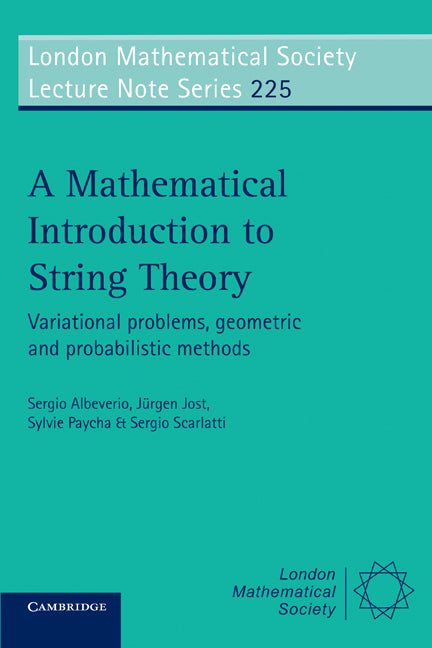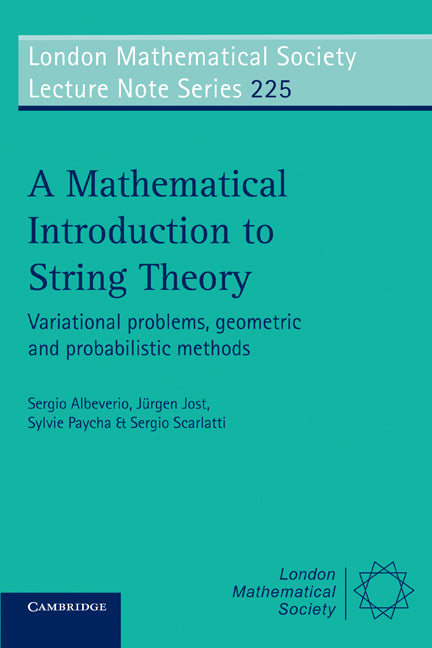Freshly Printed - allow 8 days lead
Couldn't load pickup availability
A Mathematical Introduction to String Theory
Variational Problems, Geometric and Probabilistic Methods
This book deals with the mathematical aspects of string theory.
Sergio Albeverio (Author), Jurgen Jost (Author), Sylvie Paycha (Author), Sergio Scarlatti (Author)
9780521556101, Cambridge University Press
Paperback, published 17 July 1997
144 pages
23.4 x 15.4 x 1 cm, 0.22 kg
' … it is admirable how the authors managed to introduce such a quantity of material in 85 pages … a good introduction to contemporary research in the field.' European Mathematical Society
Classical string theory is concerned with the propagation of classical 1-dimensional curves 'strings', and the theory has connections to the calculus of variations, minimal surfaces and harmonic maps. The quantization of string theory gives rise to problems in different areas, according to the method used. The representation theory of Lie, Kac-Moody and Virasoro algebras have been used for such quantization. In this lecture note the authors give an introduction to certain global analytic and probabilistic aspects of string theory. It is their intention to bring together, and make explicit the necessary mathematical tools. Researchers with an interest in string theory, in either mathematics or theoretical physics, will find this a stimulating volume.
Part I. 1. Introduction
2. Topological and metric structures
3. Harmonic maps and global structures
4. Cauchy Riemann operators
5. Zeta function and heat kernel determinants
6. The Faddeev-Popov procedure
7. Determinant bundles
8. Chern classes of determinant bundles
9. Gaussian meaures and random fields
10. Functional quantization of the Høegh-Krohn and Liouville model on a compact surface
11. Small time asymptotics for heat-kernel regularized determinants
Part II. 1. Quantization by functional integrals
2. The Polyakov measure
3. Formal Lebesgue measures
4. Gaussian integration
5. The Faddeev-Popov procedure for bosonic strings
6. The Polyakov measure in non-critical dimension
7. The Polyakov measure in critical dimension d=26
8. Correlation functions.
Subject Areas: Calculus & mathematical analysis [PBK]


